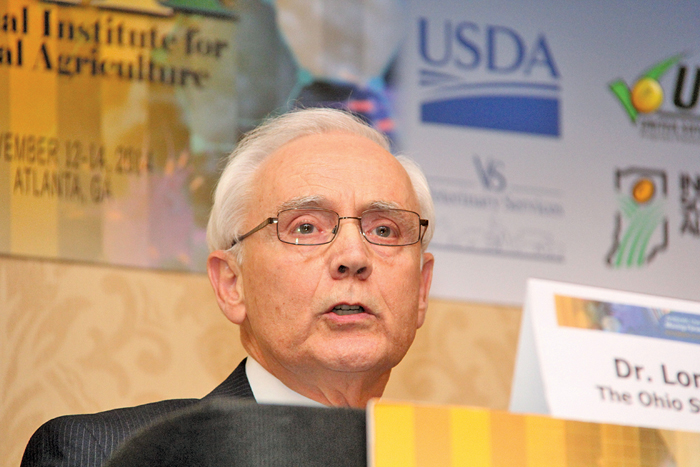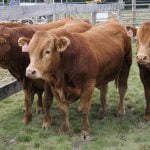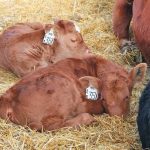Bernie Peet is president of Pork Chain Consulting Ltd. of Lacombe, Alberta, and editor of Western Hog Journal. His columns will run every second week in the Manitoba Co-operator.
Over the last few years, the western Canadian pork industry has become heavily dependent on foreign workers. Indeed, it is not too far fetched to say that many producers would have gone out of business had they not been able to bring in well-qualified staff from countries such as the Philippines.
Read Also

THROWBACK: A refresh on pain management practices during calving
Having painkillers for hard calf births can lead to healthy calves and beef cows this calving season, Manitoba veterinarians say.
Unfortunately, the needs of hog producers for long-term skilled workers conflict with the objective of the Temporary Foreign Worker Program (TFWP), which is focused on addressing short-term labour and skills shortages. Most producers need employees for the long term because there are very few Canadians entering the production sector. This means helping your foreign employees obtain permanent residency in order to avoid having to go through the whole process of obtaining a Labour Market Opinion (LMO) and work visa every 12 months. New rules that came into force on April 1 mean that this is even more imperative, because the maximum time a foreign worker can be employed is now four years.
The four-year rule does not apply to people in management positions, or those who have gained approval under one of the provincial nominee programs and are therefore in the process of obtaining residency. Workers employed under the Seasonal Agricultural Worker Program or the NAFTA agreement are also exempt, although these categories are not usually relevant in hog production. In the case of workers nominated for residency, they can obtain a new work visa from Citizenship and Immigration Canada by applying to its Vegreville, Alberta office without having a new LMO.
It should be noted that in most provinces, unskilled workers in primary agriculture cannot apply under nominee programs, unlike in some industries such as food processing. That is why the majority of people employed in the pork industry have come in as skilled workers and I always advise producers to recruit skilled workers.
The second set of new rules is aimed at protecting the interests of foreign workers because, unfortunately, there has been some abuse of the system. These reforms are aimed at ensuring the employer and the job are as they are purported to be, and to ensure the “genuineness” of the job offer.
Also, employers who have employed a foreign worker in the past must make a declaration that they have substantially complied with the requirements of the LMO in terms of wages, working conditions, and job duties. Employers must supply documentation to prove these points if requested by Human Resources and Skills Development Canada (HRSDC).
If they have not met the terms and conditions of the LMO and do not compensate the employee appropriately for any shortfall, they may be ineligible to hire a foreign worker for two years and their name will be published on the CIC website. CIC advises workers to consult the website prior to entering into an employment agreement with a prospective employer.
APPLICATION
Applying for an LMO paves the way for workers to obtain a work visa as they enter the country. Prior to the application, advertising must be carried out to prove that there are no suitable candidates available in Canada.
Beginning April 1, the single LMO application form is replaced by four separate forms depending on the job category. Skilled workers are covered by the High Skilled Occupations Stream. The new application forms include a number of additional requests for information, notably relating to the previous employment of foreign workers, and a declaration that the employer will meet the requirements stated in the LMO and is compliant with all relevant employment legislation.
So what does all this mean for hog producers?
Essentially the nuts and bolts of the process have not changed, but a lot of detail has. Bona fide employers have nothing to fear but, as usual with any federal initiative, they will have to jump through more hoops and complete more paperwork. This increases the likelihood of errors, and one mistake can mean going back to the beginning in a process, which can take several additional months. Employers should retain detailed records of all aspects of compensation and treatment of foreign workers, not just salary records.
The four-year rule is one that producers must be aware of because although the TFWP is by definition temporary, most producers wish to retain good staff members permanently. The various provincial nominee programs are the appropriate route to a worker obtaining residency. But not only can the whole process take up to 12 months, each province limits the number of provincial nominees that can be accepted each year.
So producers really need to plan ahead with their foreign labour requirements, even though this is not always easy. Existing foreign workers need a new LMO every 12 months in order to renew their work visa and there is always the risk that it will be refused, so the application should be made with plenty of time to spare. You should check with an HRSDC office to get an estimate of processing time.
Foreign workers will continue to be the main source of skilled labour for the industry in the foreseeable future, so it is essential producers and their representative bodies stay on top of the requirements for employing them.
———
Foreignworkerswillcontinuetobethemain sourceofskilledlabourfortheindustryinthe foreseeablefuture,soitisessentialproducers andtheirrepresentativebodiesstayontop oftherequirementsforemployingthem.














